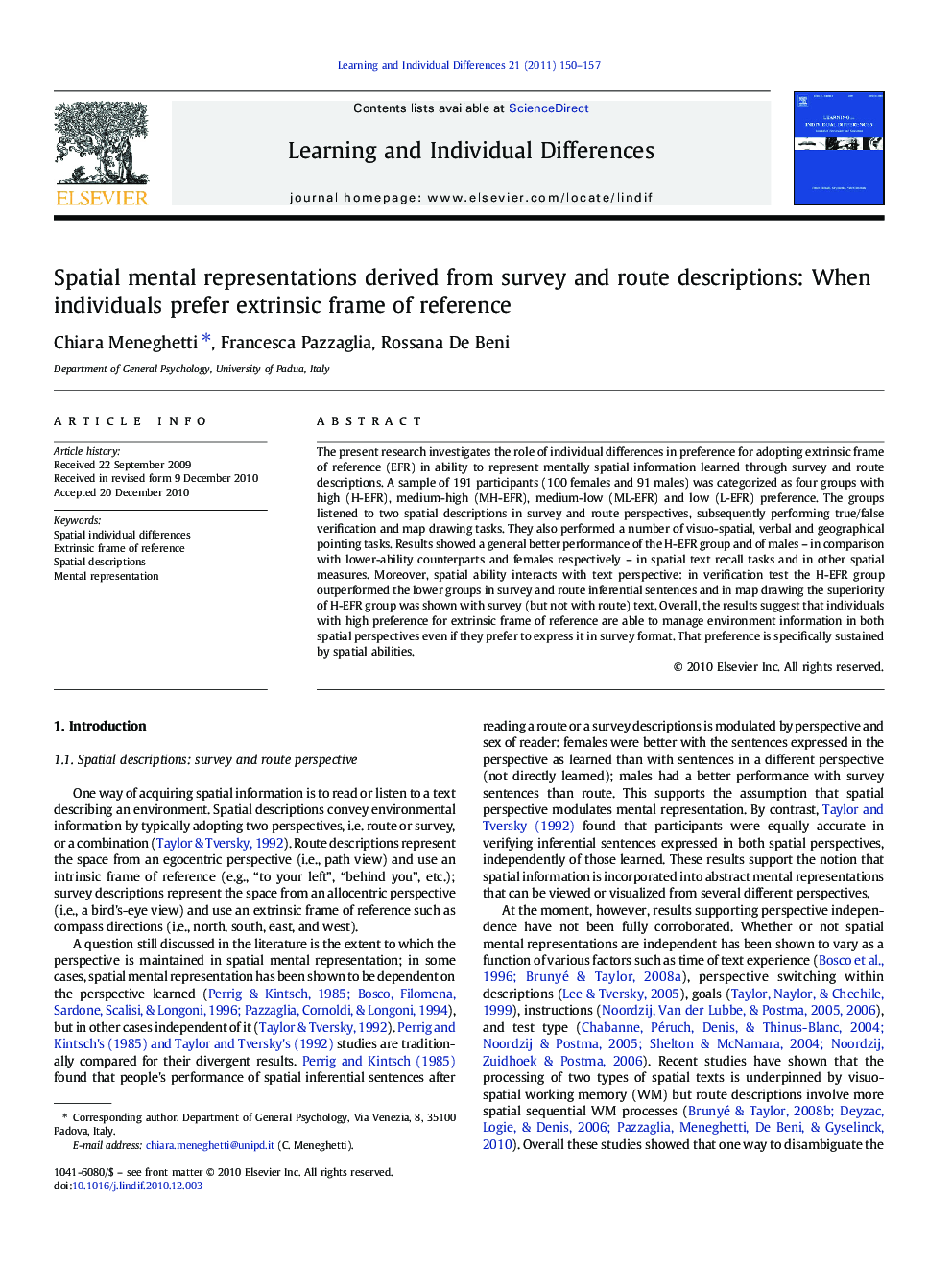| کد مقاله | کد نشریه | سال انتشار | مقاله انگلیسی | نسخه تمام متن |
|---|---|---|---|---|
| 365306 | 621120 | 2011 | 8 صفحه PDF | دانلود رایگان |

The present research investigates the role of individual differences in preference for adopting extrinsic frame of reference (EFR) in ability to represent mentally spatial information learned through survey and route descriptions. A sample of 191 participants (100 females and 91 males) was categorized as four groups with high (H-EFR), medium-high (MH-EFR), medium-low (ML-EFR) and low (L-EFR) preference. The groups listened to two spatial descriptions in survey and route perspectives, subsequently performing true/false verification and map drawing tasks. They also performed a number of visuo-spatial, verbal and geographical pointing tasks. Results showed a general better performance of the H-EFR group and of males – in comparison with lower-ability counterparts and females respectively – in spatial text recall tasks and in other spatial measures. Moreover, spatial ability interacts with text perspective: in verification test the H-EFR group outperformed the lower groups in survey and route inferential sentences and in map drawing the superiority of H-EFR group was shown with survey (but not with route) text. Overall, the results suggest that individuals with high preference for extrinsic frame of reference are able to manage environment information in both spatial perspectives even if they prefer to express it in survey format. That preference is specifically sustained by spatial abilities.
Research Highlights
► Spatial mental representation from survey and route texts are perspective-dependent;
► High preference for EFR allows to manage information in both spatial perspectives;
► High preference for EFR is sustained by spatial abilities.
Journal: Learning and Individual Differences - Volume 21, Issue 2, April 2011, Pages 150–157